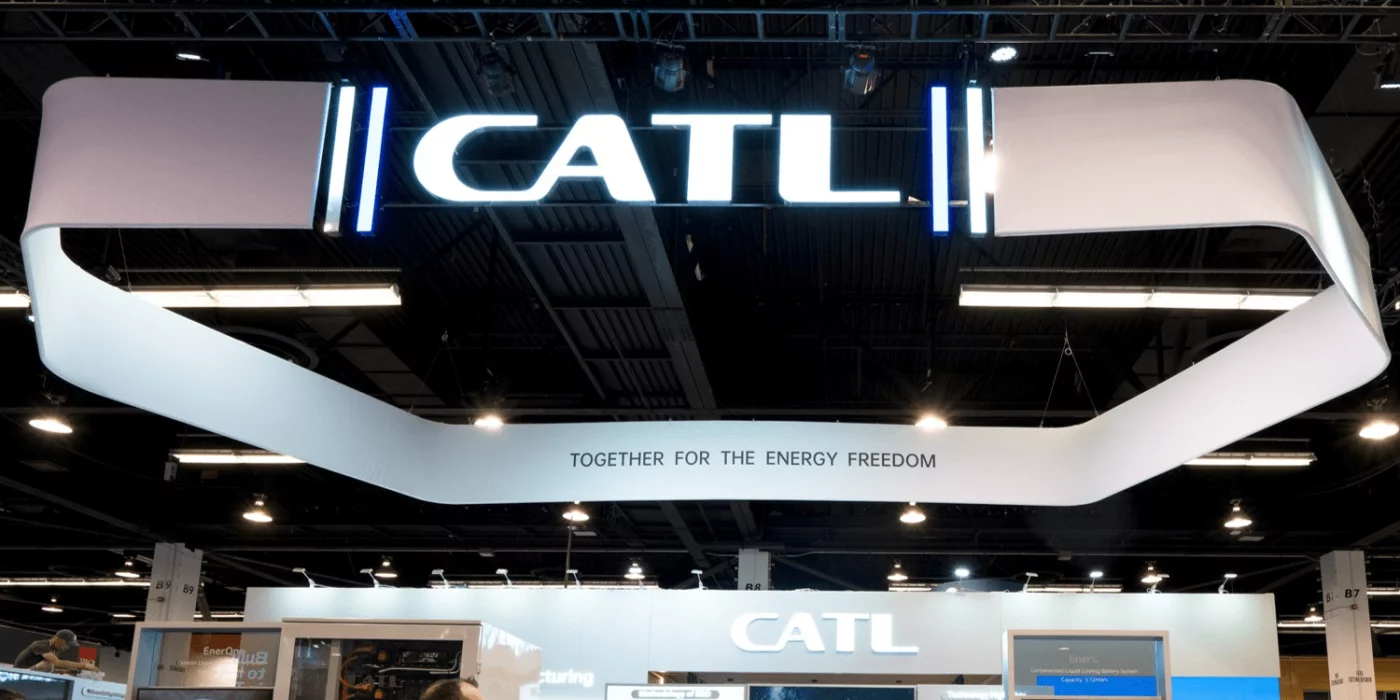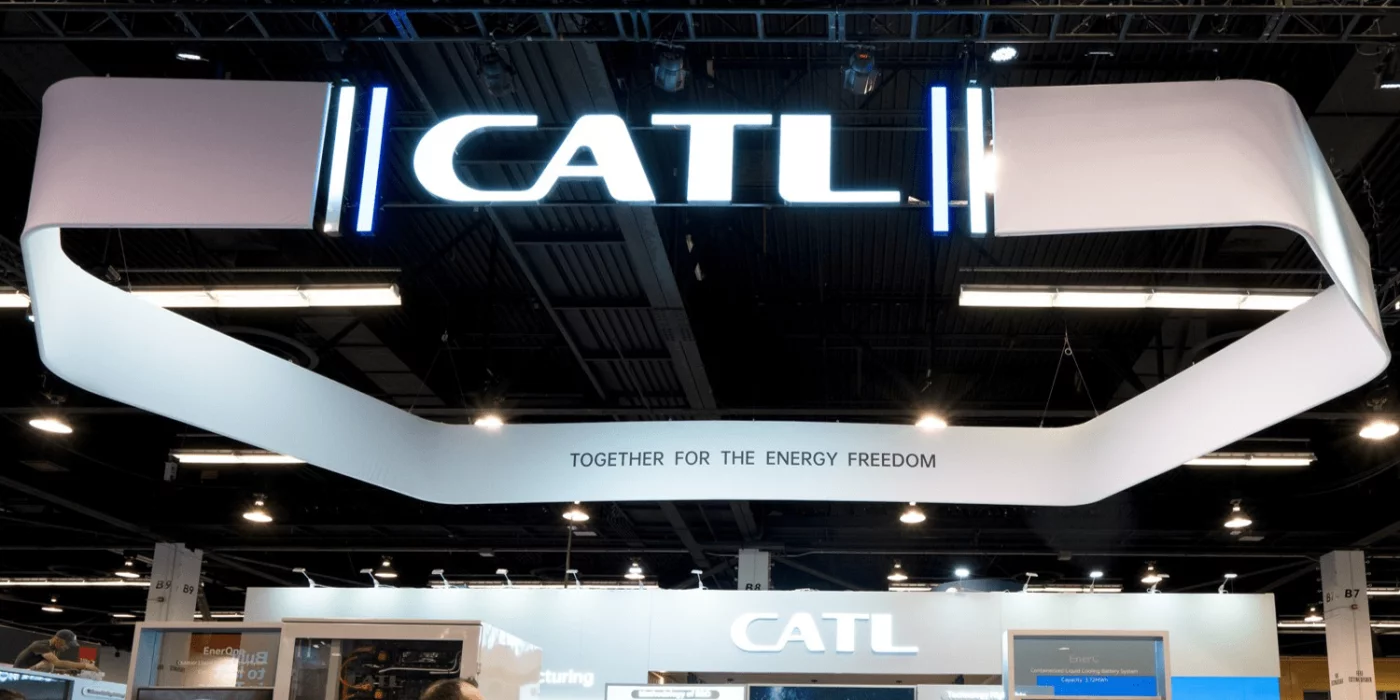CATL Says Sodium-Ion Battery Reaches 175 Wh/kg, Ready For Mass Supply In 2026
CATL Says Sodium-Ion Battery Reaches 175 Wh/kg, Ready For Mass Supply In 2026

CATL Says Sodium-Ion Battery Reaches 175 Wh/kg, Ready For Mass Supply In 2026

CATL Says Sodium-Ion Battery Reaches 175 Wh/kg, Ready For Mass Supply In 2026

CATL Says Sodium-Ion Battery Reaches 175 Wh/kg, Ready For Mass Supply In 2026

I'm not that tech savvy: what is the average Li-ion density?
This is from memory, but i think it's approximately accurate, especially in relations to each other:
Li-ion have 280-320 Wh/kg but they have the disadvantage that they're explosive. If you get in an accident and the battery gets damaged, it explodes rather violently, and you don't want that for safety reasons.
Then there's LFP batteries which also contain Lithium as the main ingredient, but they have the advantage that they don't explode when they're damaged. They have 220-250 Wh/kg.
Then there's Na-ion, which also have the advantage of not exploding when damaged, and they have 160 Wh/kg (depending on type, new types with better energy density are being actively researched right now). They have the additional advantage of not containing Lithium (Li), instead they contain Sodium (Na), which is significantly cheaper and more widely available worldwide. So the batteries have the prospect of being much cheaper, especially if produced in large scales, and that's really the main advantage they have.
It's not so much about Wh/kg for stationary applications (like grid stabilization or home storage), instead it's about Wh/$, i.e. how much storage capacity you get per dollar. And that is significantly higher for Na-ion than for Li-ion or LFP.
I didn't know either but Wikipedia says 1–270 W⋅h/kg for specific energy. It lists energy density in litres.
The ones typically used in cars are listed as 90–160 [Wh/kg].
Sodium chemistry works well down to -20C , they don't drop off in efficiency like lithium.
Interesting that it took so long. I assumed that Sodium-ion would have hit the mass market one or two years ago when CATL announced they started mass-producing these cells in 2023.
For example, Yiwei debuted its first sodium-ion battery in an electric car in late 2023.
It must be a question of what "mass market" mean? I've been to sodium battery installations using CATL batteries and I'm rather far from any of the markets that are hot spots...
I mean does anyone either bother reading the press releases?
They're shipping packs for assembly into vehicles to Europe q1 2026
I guess the thing is that installing batteries at a large scale only really makes sense when you have a lot of excessive solar energy that you want to store, and we're simply not there yet. China produces sth like 10% of its electricity from solar these days, and that's simply not excessive enough to make it worthwhile to store the excess solar energy production. It's all consumed immediately, almost. Only when we hit like 50% solar energy generation, will there be excesses significantly enough to consider storing them, is my guess.
TBH i think the best use of energy is to consume it as immediately as possible.
When the sun shines, solar energy prices are cheap because there's a lot of supply, and then you gotta run all the factories at high speed. This way, you don't need to store a lot of energy for the night.
Run all the factories at high speed...ok.
If only factories were built that way.
In reality, the amount of adjustable load is rather small. Currently, we’re using that in the reserve market to balance the grid a little bit. It’s enough to deal with some frequency deviations, but nowhere enough to handle intermittent energy production.
Generally speaking, factories are designed to run 24/7, and it’s not easy way to drop production rate without causing some strange problems. That’s why you need grid energy storage.
But if factories could drop to 10% at night, and gradually ramp up to 100% in the noon, that would be ideal from the energy perspective. Storting energy is hard and comes with all sorts of issues, so factories like that could avoid all those issues. Would be great, but that’s not the world we live in.
factories are designed to run 24/7, and there is not easy way to drop production rate without causing some strange problems.
the same is true for living animals. they're designed to run 24/7, and there is no easy way to drop metabolic activity without causing some strange problems.
except that's not how it is. animals can sleep. nature has mastered energy-efficiency by making animals only intermittently active. maybe nature's one step ahead of us, this time.
This is important for a few reasons. These batteries cost less because they don't rely on lithium. Sodium is extremely abundant and takes little energy to mine and refine. But more importantly, they last much longer and they work in very cold temperatures.
And I'll believe it when I see it, rather than a press release of promises which is basically a paid ad to hitch investors.
This kind of disinterested cynicism is toxic.
You can buy sodium batteries from this company, right now, on Alibaba.
They're the world's biggest battery manufacturer, that's like doubting Samsung when they talk about the feature of their next smartphone.